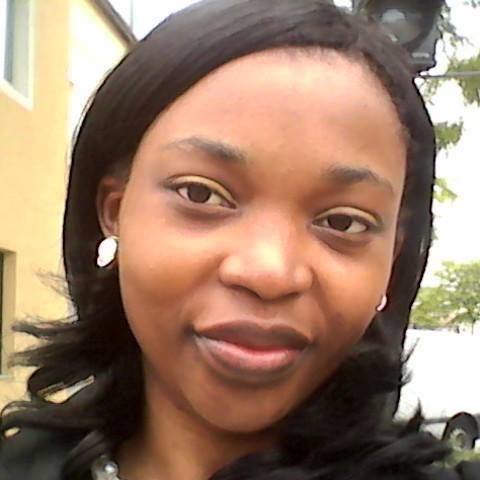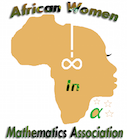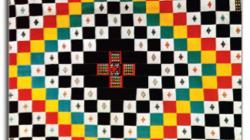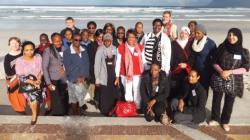
I find it very fulfilling to see my students happy because I helped them understand Mathematics
Education
- 2014 - 2018 PhD in Applied Mathematics at University of KwaZulu-Natal, South Africa.
- 2011 - 2013 Masters in Bioinformatics at University of Cape Town, South Africa.
- 2010 - 2011 Post Graduate Diploma in Applied Mathematics at African Institute for Mathematical Sciences (AIMS), South Africa.
Professional experience
- I worked as a teaching assistant in the Department of Mathematics and Applied Mathematics at the University of Cape Town in 2013.
- I served as a teaching assistant in the school Mathematics, Statistics and Computer Science at the university of KwaZulu Natal from 2014 to 2017.
- Currently, I am one of the IMU ambassador in South Africa and serving as the Communication Officer of the African Women in Mathematics Association (AWMA) since 2013.
Honours and prizes
First prize for the Best Final Presentation at the South African Young Scientists Summer Program (SA-YSSP) and I was placed second for my final report.
Questionnaire
Your story with mathematics
Can you tell us something about your story? Why did you join the field of Mathematics? When have you decided to be a mathematician and why?
I joined the field of Mathematics because I like it. I discovered my passion for mathematics in grade one. One day, I was chatting with my friends and they asked me which field will I chose? I thought for a while and then I said I will be a Mathematician.
What fascinates you about Mathematics?
The Logic of Mathematics fascinates me.
Did you have a role model that influenced your decision to become a mathematician?
Yes. My father. My father was a lectured mathematics in secondary school. He trained me and my other siblings in mathematics when we were still in primary school. Now Mathematics is a part of me.
Has anyone supported you in your choice and during your career?
Yes. By the grace of God, my family and particularly those who are mathematicians have really supported me a lot with their experiences, advices and even financial support when necessary. Also, I had very good lecturers and supervisors of mathematics who believed in me, trained me well and encouraged me as well.
Were there any specific factors that helped you succeed?
Yes. God and Funding. I would like to take the opportunity to thank God for His grace, knowledge and protection He has given me. Also, I would like to thank AIMS, DAAD and UCT for sponsoring my post graduate studies.
Would you see it was easy for you to enter your field, and ultimately excel?
Yes. It was easy for me to enter my field because already I had role models. I saw my father, my sister and my brother managing it.
What challenges did you encounter on the way?
The main challenge I encountered was that Mathematics demands hard work.
What is the funniest or most memorable thing that has happened to you while working in mathematics?
The happy part of mathematics is when you finally proof/solve the problem you were searching for. Also as a teacher, I find it very fulfilling to see my students happy because I helped them understand mathematics.
Career and Family
Do you come from an academic family? How does your family regard your career choice?
Yes. My family is very happy with my choice and very supportive as well.
Tell us about balancing family life with work life?
It is a matter of priority. In order to manage both career and private life, it is important be organized and allocate a time for everything and to be disciplined.
Women and Mathematics
Tell us about the organizations for women mathematicians that you are a part of? How has this helped your career?
I am part of the AWMA and IMU. They help me to get connected with other women mathematicians. Also, it is during the CIMPA School and the workshop organised by AMUCWMA at AIMS in 2013 that I got in contact with my PhD supervisor.
Do you consider it necessary to organize special programs like Girl’s Day promoting mathematics for girls in schools?
Girl’s day is very important. The earlier we get to like mathematics the more likely it is to engage a career in Mathematics. Personally I got in contact with mathematics in primary school through my father.
What else, do you think, could further be done to support woman with mathematics as their career?
Having mentoring (one to one) sessions to encourage, help and coach women with their difficulties they are encountering in mathematics. This could also help to know what women are going through and contribute by informing policy makers to help them out.
Teaching mathematics, especially to non-mathematicians, can be a challenge. What is your strategy to catch and keep the attention of your audience?
I usually use a simple language they are familiar with. Also, I take a lot of simple examples to make them understand.
How would you explain your research to a layman (non-specialist)?
My research consists in analyzing complex mathematical problems that describe phenomenons with two time scales (slow and fast) which are very difficult to analyse using existing methods. The main aim of the study is to find conditions under which such mathematical problems can be simplified without compromising the most salient features of their dynamics. I focused on the case where the expected changes of the dynamics of the original problem occurs with unexpected delays.
Can you tell us about the applications of your research, if any?
This research finds its application in many fields including population modeling, neurophysiology, biochemistry. It can be used in analyzing, for example, multiple scale ecological systems as it allows for recognizing situation in which the size of some species can drop below, or grow above, levels predicted by standard approximations.
Conclusion
What are your biggest achievements, and what your biggest failures?
My biggest achievements so far were to be able to publish a paper in mathematics and also to contribute in teaching and encouraging young women (of first and second years) in mathematics.
Do you have a dream? Any particular problem you dream to solve now?
My dream is to be able to inspire as many women as possible to engage a career in mathematics and to be able to contribute in solving real life problems that have rob the world of its skillful man power.
Which advice would you give to young girls who want to engage a career in mathematics?
I would like to advise every young girl who want to engage a career in mathematics to remain focus on her goal and not to get discourage if ever things get harder than she expected. She has what it takes. It will be also good that she gives her best of every opportunity she considers good for her vision.






